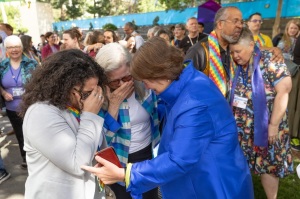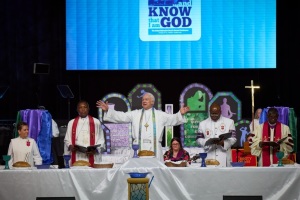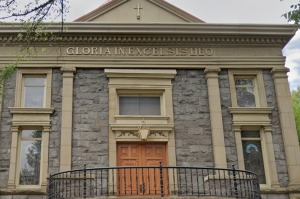Obama and Presidential Hubris
"I'm going to act because it's the right thing for the country."
So declared President Obama recently to Meet the Press interviewer Chuck Todd and his audience. The discussion centered on the President's looming executive action on immigration, which he has delayed until after the midterm elections. The reason: the politics have changed in light of the flood of unaccompanied children surging over the United States' southern borders.

One of the greatest concerns the President should have at this moment is securing the borders, but this focus fades in the eyes of what Obama views as the "right thing for the country."
When a nation's chief executive presumes to be the sole judge of what's "right" for his nation he has crossed the fine line between a government "of the people, by the people, and for the people" and a regime that cavalierly sets aside what might be the will of the people for the chief's own idea of what is "right." Such a person has gone from being a leader to a controller. Any president justifying his actions on what he alone decides is "right" for the nation has turned the constitutional republic upside down. Rather than being bottom-up, he has made it top-down.
Therefore President Obama said on the Meet the Press interview that he is delaying his executive action until he can make the public understand "what the facts are on immigration, what we've done on unaccompanied children, and why it's necessary."
But that effort at public understanding will not change his decision, apparently. Rather, the President will tell us what we are to understand, and what he is going to do and why. And then he will do it.
This is framing the debate and then winning it by fiat.
Where is the balance of powers? Where is the principle of consultative government? Where is the spirit of negotiation that gives policy a chance to be reasonable and healthy and nationally supported?
Chuck Colson said of my 1976 book, The White House Mystique, written after my three years as a low-level staffer in the Nixon White House, that it was the first of all the post-Watergate volumes "told from the exposed underside looking up." What I gained from that bottom-tier perspective was a great concern about presidential hubris, a concern that has only deepened through the years.
The hubris sickness is seen most graphically in the dizzying spectacle in which Lucifer presumes to lift his throne above all the "stars" (angels) of God. (See Isaiah 14) Hubris is always in the air of centers of power. Hubris is the spiritual and moral Ebola of the White House. All presidents and their teams of the "best and the brightest" – to borrow David Halberstam's term – get infected.
America's history is littered with the ruin brought by presidential hubris. Take, for example, the four presidents issuing the most executive orders: Franklin D. Roosevelt (3,522, an EO every 3.13 days in office), Woodrow Wilson (1,803, an EO every 1.62 days in office), Calvin Coolidge (1,203, an EO every 1.7 days in office), Theodore Roosevelt (1,083, an EO every 2.52 days in office).
George W. Bush issued 291 Executive Orders, one for every 10.04 days he was president. As of June, Obama was issuing EOs at a rate of one every 10.79 days. My boss, Nixon, sent an EO every 5.86 days he was in the Oval Office1. John F. Kennedy's short presidency, by the way, saw 22 percent more executive orders than Nixon's, measured on the daily rate.
While the right of presidential executive orders is important in urgent cases, it is when hubris takes over that they become an actual threat to constitutional order. One can understand, for example, why FDR issued the most, since he was the nation's leader during the Second World War. But he also put forth orders that deprived Japanese-Americans and German-Americans of some of their basic rights during the Second World War. Harry Truman took over the steel industry by executive fiat during a 1952 strike. Nixon exerted his executive muscle to control the economy during a period in 1974. Theodore Roosevelt refined patronage-by-executive order to high form during his presidency. Woodrow Wilson's executive order 2526 forbad persons of Chinese descent from entering the Panama Canal Zone.
The constitutional authorization of executive orders is a matter of interpretation, and that makes the practice even dicier. Presidents must make the assumption that every potential threat to the nation could be authentic, and be prepared for it. But when they fall into presumption it is the equivalent of going out on a wintery day with a wet head: A cold, flu, or even pneumonia is likely to result.
Presidential presumption regarding the use of executive orders guarantees a bite by the hubris bug. The ailment then spreads, and generates more presumptuous issuing of what was known in the old days as edicts.
The abolition of the idea of divine right squelched the disease in one period, and in many nations kings lost their authority in favor of rule by the people. One wonders, in our age of faux spirituality, whether humans will again be worshipped as divine.




























